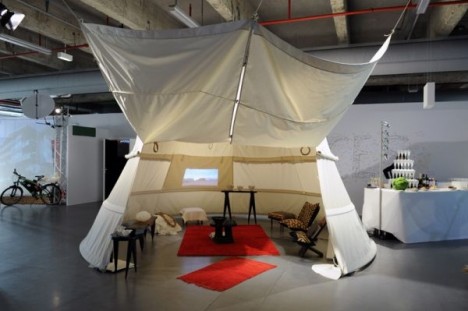1.618 Sustainable Luxury 2012
Luxury and sustainable development may sound like polar opposites, but green pioneers gathered at a Paris show at the weekend were betting on a cleaner, fairer future for the industry. Created in 2010, the four-day Paris event, dubbed “1.618 Sustainable Luxury”, brought together some 40 firms, inventors and foundations, that aim to reconcile luxury with […]

Luxury and sustainable development may sound like polar opposites, but green pioneers gathered at a Paris show at the weekend were betting on a cleaner, fairer future for the industry.
Created in 2010, the four-day Paris event, dubbed “1.618 Sustainable Luxury”, brought together some 40 firms, inventors and foundations, that aim to reconcile luxury with ethics and environmental good practice.
From designer fashion to jewellery, design or tourism, luxury firms are under rising scrutiny from pressure groups demanding traceability on raw materials, and transparency on manufacturing conditions and environmental impact.
“Sustainability is about people, planet and profit,” innovation consultant Francois Prevost told a debate at the show. “The luxury world is very good at one of the three pillars — profit — but needs more work on the other two!”
Just how much do luxury consumers care how their handbags, wristwatches or yachts are made?
In the West, at least, the answer is rather a lot, according to a survey of French luxury consumers commissioned by Jean-Noel Kapferer of the HEC business school, unveiled at the fair.
He discovered a yawning gap between what consumers expect of luxury brands — and how they judge their performance.
Seventy percent said the sector should be showing the way on sustainability, given the prices it commands, according to the survey of 966 luxury consumers carried out by the pollster BVA in February.
Yet 52 percent thought the luxury industry was lagging in terms of sustainability, and 44 percent that it was wasteful.






